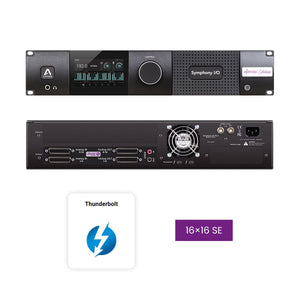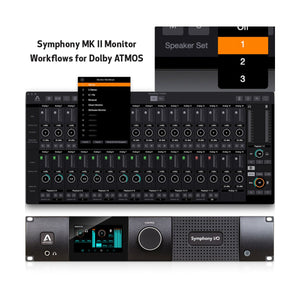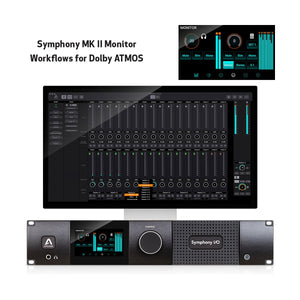Your Cart is Empty



$9,999.00$11,763.53
APO-S2-T-16X16SE
Apogee Symphony MKII Thunderbolt W/ 16 Analogue In & Outs (Special Edition)
FEATURES
-
Streamlined new interface
-
Easily adapt the layout to fit your workflow
-
Essentials control strip maximizes screen space FX send lets you use your DAW’s effects with low latency monitoring
-
Use your Mac’s Built-in mic for the new Talkback feature
-
The output source button lets you toggle between mixes
-
Create up to 16 “Monitor Workflows” in all popular multichannel configurations: Stereo to ATMOS 9.1.6.
-
Instantly switch between Monitor Workflows from the Apogee Hardware Remote, Symphony Control software or the front panel touchscreen
-
Mute, Solo and calibrate up to 16 speaker outputs
Type: Thunderbolt Interfaces



